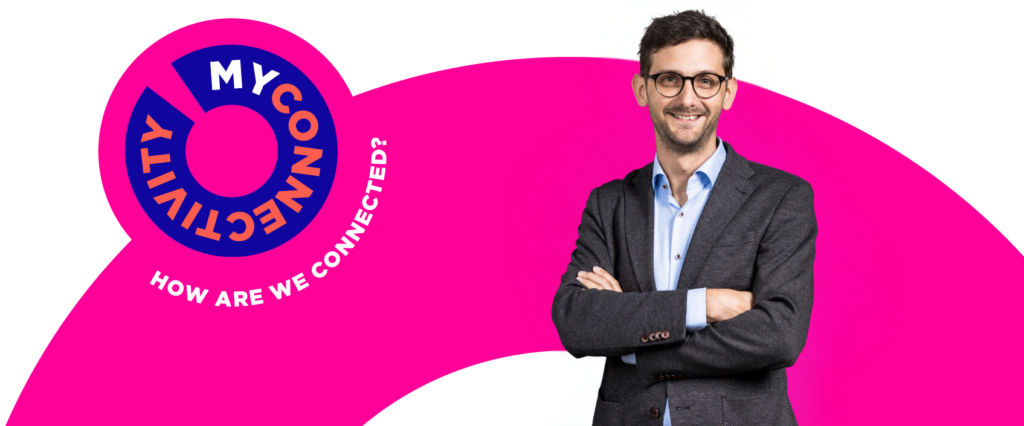
Championing diversity and building resilience in cybersecurity: A conversation with Sabika Ishaq
Scroll
In an increasingly digital world, connectivity and cybersecurity go hand in hand. As digital infrastructure evolves, so too does the need for robust cybersecurity measures to protect the integrity of our systems and the trust of users. In this context, we sat down with Sabika Ishaq, Chief Information Security Officer (CISO) at Grant Thornton Luxembourg and President of Women Cyber Force, to explore the critical relationship between connectivity and security, and how diversity in cybersecurity is driving innovation and resilience.
Scroll
A journey into cybersecurity
Sabika’s entry into cybersecurity began with her studies in Information Security and Management in the early 2000s, a time when the field was still in its infancy. At the London School of Economics and Political Sciences, she was one of only 10 women in a cohort of 150 students.
Her initial career steps led her to the United Nations, where she developed innovative technological solutions for remote, disaster-prone areas. These experiences sparked a passion for problem-solving through technology, ultimately guiding her back to the private sector to specialize in cybersecurity. “Cybersecurity is a fast-paced field that demands continuous learning,” Sabika emphasizes. “Upskilling and adapting are not just career strategies; they are essential survival tools.”
The Luxembourg cybersecurity landscape
Luxembourg stands out as a hub for digital innovation, supported by strong regulatory frameworks and a commitment to gender diversity. “The country’s proactive stance on cybersecurity is evident in its investments, regulatory initiatives, and collaborative networks,” Sabika notes.
Yet challenges remain, particularly for SMEs, which often face resource constraints. Platforms like the Luxembourg House of Cybersecurity and the Luxembourg House of Financial Technology (LHOFT) provide vital support to bridge these gaps.
“Building a secure posture is not a one-time silver bullet,” Sabika explains. “Organisations have to continuously monitor and maintain their information security management systems. This involves regular risk assessments, incident response planning, crisis management exercises, thorough testing, and fostering a culture of cybersecurity awareness throughout the organisation. Only through consistent vigilance and improvement can businesses effectively protect themselves in an ever-evolving threat landscape.”
Women’s Cyber Force: Empowering through inclusion
As President of Women Cyber Force, the Luxembourg chapter of the Women4Cyber Foundation, Sabika leads a vibrant network of 150 professionals advocating for greater representation in cybersecurity. “Our initiatives are designed to empower women at every stage of their careers,” Sabika explains. These include:
- Mentorship Programs: Offering guidance and support to women transitioning into cybersecurity or advancing within the field.
- Scholarship Programs: Partnering with the Luxembourg Institute of Science and Technology (LIST) to sponsor master’s degrees in Information Security for aspiring women professionals.
Women Cyber Force also hosts events to amplify the voices of women in cybersecurity and foster dialogue across sectors.
Closing the gender gap in cybersecurity
Despite progress, the gender gap in cybersecurity persists. Globally, women represent only 30% of the cybersecurity workforce, and leadership roles remain disproportionately male. Sabika points out the importance of structural measures, like quotas, to accelerate change.
“Women must seize opportunities, even if they don’t tick every box,” she says. “Confidence and determination are key to breaking barriers and setting new standards.” Sabika highlights the critical role of diversity in effective crisis management and technological innovation. “Diversity brings unique perspectives, particularly in communication and collaboration, which are invaluable in managing crises,” she explains.
Drawing from her experience leading a diverse team at Grant Thornton, Sabika underscores how diversity contributes to well-rounded solutions by combining technical expertise with emotional intelligence and strategic insight.
The future of cybersecurity: AI, ethics and collaboration
Looking ahead, Sabika identifies artificial intelligence (AI) as a game-changer in cybersecurity. “Ethical considerations, data protection, and collaboration will define the success of AI adoption,” she predicts. Luxembourg’s collaborative approach through working groups and partnerships is a real asset in addressing emerging cybersecurity challenges. With technology advancing at an unprecedented pace, Sabika’s commitment to diversity and collaboration in cybersecurity serves as a powerful reminder that resilience in the digital age is built not just through technology, but through the people who drive it forward.


